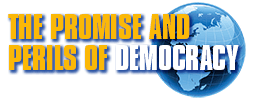The COVID-19 pandemic has wreaked havoc on the U.S. workforce with layoffs, reduced hours, diminished earnings, and loss of health insurances. It has also it exposed deep inequalities around race and gender lines. Last night, as part of its CHANGE series, The Graduate Center gathered leading scholars and writers for a timely discussion of the impact of the COVID-19 pandemic on work in the U.S. and what can we expect the future of employment to look like moving forward.
Moderated by Felicia Wong, president and CEO of the Roosevelt Institute, last night’s guests discussed employment impacts and government response. Paul Krugman, distinguished professor of economics at The Graduate Center, explained the early government bailout package, the CARES Act, which provided stimulus money to broad occupational sectors. He is concerned about what happens if a second one is not to follow.
Michelle Holder, assistant professor of economics at John Jay College, discussed how black women are discriminated against in the labor market based on both their race and their gender. They often work in low-paying jobs most strongly hit by the pandemic and in most need of support funds.
Brigid Schulte, author of Overwhelmed: Work, Love, and Play When No One has The Time, outlined the child care crisis before COVID-19 and now exacerbated by the pandemic and the limitations of the CARES Act. The crisis, she noted, is hitting disproportionately along class and race lines. “We are in the middle of a child care crisis and for the life of me I don’t understand why people aren’t out on the street protesting, why there isn’t more outrage over the fact that so many child care centers are closed and many of them will probably never reopen,” Schulte said. “And yet the child care bailout was $3 billion — Delta Airlines got more than that.”
Holder echoed this when she said, “One of the cleavages of this pandemic is how central child care is to workers … Child care work is really unaffordable for most working-class families while at the same time child care workers are not being paid a living wage. If we want to talk about public investment helping us now, it would be in child care.”
The three panelists agreed that care-related jobs are crucial and will grow and occupy an ever-larger position in the U.S. economy. It is important to direct good policy in the form of large-scale public investment at that. “The composition of jobs, the future economy, is going to be one that is centered on caring for people,” Krugman said. “The fastest growing occupations, most of them are nursing or social support. The thing to do is not to say how can we have different jobs, but instead to say these are the jobs we need to have done. How can we make sure that the people who are doing these jobs are adequately cared for?”
The democratic impact of equal workforce access and treatment cannot be overstated. If certain groups are systematically excluded from better paying or any jobs (or education, the precursor), with a broader range of benefits, these same groups experience obstacles to democratic participation. More time spent working either longer hours or several jobs, commuting or providing childcare, fewer financial resources, or less health care, means fewer capacities to access information or participate in the logistics of voting. The result are skewed democratic results at best.
